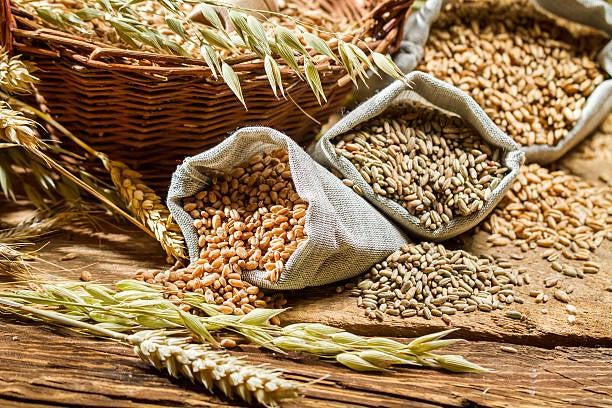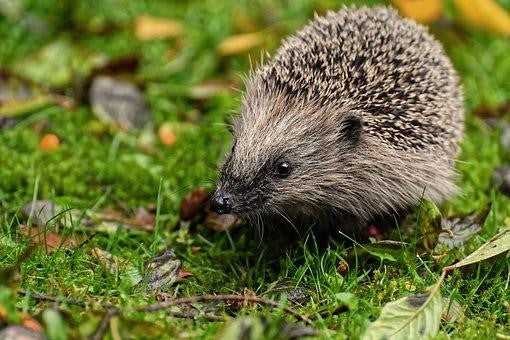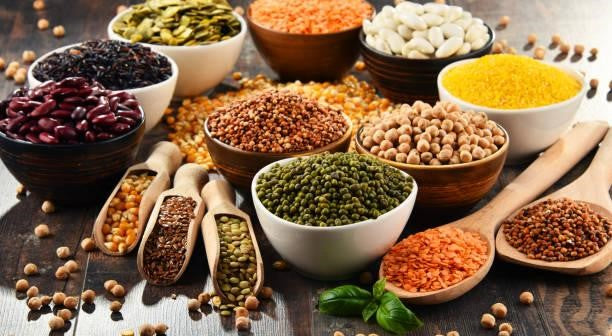
Grains are tiny, hard, and edible dry seeds, which are gotten from grass-like cereals. Wheat, rice, and corn are a few of the grains that are frequently grown and consumed. Barley, oats, millet, sorghum, and rye are some more widely used grains. Grains have been a significant part of human history and are a staple diet in the majority of nations. The human diet has included whole grains for tens of thousands of years. However, proponents of some contemporary diets, assert that consuming grains especially wheat is unhealthy.
Whole grains have a distinct health profile from processed grains, which have been related to issues including obesity and inflammation. In actuality, consuming whole grains is linked to several advantages, such as a reduced risk of diabetes, heart disease, and high blood pressure. However, this article is more concerned with the possibility of hedgehogs consuming grains whether whole or processed
CAN HEDGEHOGS EAT GRAINS?
Yes, hedgehogs can eat grains in moderation. Since most grain-free foods are very high in protein and it is crucial to keep the protein level of a hedgehog’s diet around 35% to prevent renal stress, it would be rather challenging to completely exclude grains from its diet. It is advisable to stay away from corn and anything that has an excessive amount of grains because they are difficult to digest and tend to be used in low-quality dishes.

WHAT NUTRIENTS DO GRAINS CONTAIN?
To ascertain the benefits and dangers of feeding grains to hedgehogs it is recommended to first be acquainted with the nutrients that grains contain. Below is a table showing the nutrients that 100 grams of rye grain contain.
|
NUTRIENTS |
QUANTITY |
|
Water |
10.6 g |
|
Energy |
338 kcal |
|
Protein |
10.3 g |
|
Fat |
1.63 g |
|
Carbohydrate |
75.9 g |
|
Fiber |
15.1 g |
|
Sugar |
0.98 g |
|
Calcium |
24 mg |
|
Iron |
2.63 mg |
|
Magnesium |
110 mg |
|
Phosphorus |
332 mg |
|
Potassium |
510 mg |
|
Sodium |
2 mg |
|
Zinc |
2.65 mg |
|
Copper |
0.367 mg |
|
Manganese |
2.58 mg |
|
Selenium |
13.9 µg |
|
Vitamin A |
11 IU |
|
Vitamin B6 |
0.294 mg |
|
Vitamin B-12 |
0 µg |
|
Vitamin C |
0 mg |
|
Vitamin D |
0 µg |
|
Vitamin E |
0.85 mg |
|
Vitamin K |
5.9 µg |
|
Thiamin |
0.316 mg |
|
Riboflavin |
0.251 mg |
|
Niacin |
4.27 mg |
BENEFITS OF FEEDING GRAINS TO HEDGEHOGS.
- Grains are a wonderful source of fiber: Grains possess a lot of fiber, which is important for the health of a hedgehog’s digestive system. Fiber also controls blood sugar levels, which reduces the risk of heart disease and other chronic diseases.
- Grains can aid in weight loss: Whole grains have significant fiber content, which keeps a hedgehog feeling full for a long period. When a hedgehog is full, it is less likely to munch on harmful junk food. Thus, grains could be beneficial if a hedgehog has to shed a few pounds.
- Grains are optimal for heart health: The first benefit of whole grains is their high fiber content, which keeps a hedgehog’s arteries clear, and lowers risky cholesterol levels. Consuming whole grains has been found in studies to reduce the incidence of heart disease and stroke. Since they lower the risk of heart disease and stroke, whole grains can be considered beneficial to hedgehogs. They are also a significant source of antioxidants, which aid in reducing inflammation.
- Whole grains can help to regulate blood sugar levels: This is one of the most important benefits of feeding whole grains to hedgehogs. Improper blood sugar management can result in more serious health problems like diabetes, weight gain, and even heart disease for hedgehogs. However, feeding whole grains to hedgehogs can help to keep their blood sugar levels constant, and lower their chances of getting sick.
- Prevention of cancer: Whole grains contain lots of nutrients that possess anti-cancer properties, which may help reduce the risk of cancer. Feeding whole grains to hedgehogs can help to reduce the risks and prevent cancer in hedgehogs.
- Grains can help a hedgehog to live a long and healthy life: The minerals in whole grains can help a hedgehog to live a longer and healthier life. The foundation of overall good health is a healthy digestive system and fiber helps hedgehogs to maintain a healthy digestive system. However, whole grains have advantages beyond just fiber. They also contain a lot of antioxidants that help hedgehogs to stay healthy and avoid illnesses.

RISKS OF FEEDING GRAINS TO HEDGEHOGS.
Despite the numerous benefits, there can be certain drawbacks to grains. Instead of whole grains, these drawbacks are often assigned to processed grains thus, hedgehogs should not be fed with processed grains. To begin with, most of the fiber that grains contain is lost in the refining process, so processed grains lack the necessary amount of fiber required in a hedgehog’s diet. Additionally, they lack the healthy phenolic compounds that whole grains offer. Even though iron and vitamin B are frequently added to refined grains, they lack other minerals and antioxidants that are present in whole grains.
Also, many foods containing refined grains are high in other nutrients, such as added sugar, sodium, and saturated fat, which can have negative impacts on a hedgehog’s health if consumed in excess. Because of this, processed grains are not associated with the same health advantages as whole grains and should not be consumed by hedgehogs, because they are frequently linked to outcomes that are detrimental to a hedgehog’s health.
CONCLUSION.
Although hedgehogs can consume whole grains because of the advantages they possess, refined grains may be very harmful to a hedgehog’s health so they should not be included in a hedgehog’s diet. Fiber-rich whole grains have been linked to a host of health advantages for hedgehogs, including a reduced risk of heart disease, cancer, and diabetes. On the other side, an excess of refined grains may lead to health issues like obesity and digestive problems for hedgehogs. The overall quality of a hedgehog’s diet has a greater impact on its health than any particular food or food group thus, it is important to consult a veterinarian before incorporating grains into a hedgehog’s diet.



